In the Smith BIRDS Lab, we have broad interests such as sustainable food systems, coupled human-natural systems, conservation, pathogen transmission, basic ornithology, public outreach and extension, and how to reduce the inequities that underlie these systems. Our ultimate goal is to Build Increased Resilience through Diverse Systems. We take multifaceted approaches to tackle our broader questions. For example, we conduct intensive fieldwork, molecular lab work, farmer questionnaire surveys, and meta-analyses. We conduct research at local, regional, and global scales and seek to find practical solutions that inform local land management and global policy.

Working landscapes must be multifunctional, simultaneously supporting people, biodiversity, and the environment. Biodiversity provides important ecosystem services that can help improve crop yields and farmer wellbeing. Therefore, identifying how to manage agricultural systems to promote ecosystem services is one strategy to co-manage these systems for people and nature. Much of the work we lead focuses on birds, but we also collaborate extensively to examine how to manage agricultural systems to promote other biodiversity that can provide important ecosystem services, such as arthropod pollinators and pest control agents. We are especially interested in identifying what farming systems and landscape management approaches can yield the greatest multifunctional benefits. Our work informs agricultural policy such as that set forth by the EU, WHO, IUCN, and FAO.
Agriculture is the single largest land use on the planet and is a leading threat to bird conservation. One means to incentivize bird conservation in agriculture is to bolster the services they provide to farmers such as control of insect pests. However, birds also can harm agriculture, for example, by spreading foodborne pathogens or damaging crops. We study how to co-manage agricultural landscapes to conserve birds and bolster the benefits they provide to people, while minimizing their harms.
One particular emphasis in our work has been understanding the risk that birds pose to food safety and how to mitigate risks. This is important because concerns over food safety issues have led to large-scale habitat removal. Our work has shown that food safety risks are lowest in contexts with more natural cover, rather than less. Species more common in more natural landscapes tend to come with fewer risks and rarely contaminate crops.
We love birds! We are intrinsically interested in all things birds.
Our avian research typically has an applied conservation angle, but we enjoy learning about birds broadly and sharing this passion with others.
Everyone should be able to participate in science, but historical and ongoing biases prevent that from happening. We conduct research on ongoing inequities and seek solutions to ameliorate barriers. Our prior work has focused on how the landscape of journal policies differentially filters different demographics. We have shown that journal policies create impermeable landscapes that provide strong filters for people based on geography, language, and ability/disability. We plan to continue our work seeking solutions to improve publishing equity and expand into other areas where filters are created in the “academic pipeline.”